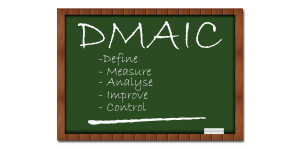Management & consulting has become an essential part of the modern business landscape. With the increasing complexities of business operations, organizations need experts to help guide them through the maze of challenges and opportunities that they face daily. This article provides a comprehensive guide to management & consulting, discussing the role of management consultants in today’s business environment, key areas of management consultation, the process of management consulting, and essential skills for successful management consultants.
The world of management & consulting can seem daunting to those who are not familiar with it, but it is a field that offers a wealth of opportunities for both businesses and individuals. By understanding the key concepts and practices involved in management & consulting, you can make more informed decisions about your own business, or even consider a career in this exciting and dynamic industry.
As we explore the world of management & consulting, it is important to remember that the goal of this field is to help businesses succeed by providing them with expert advice and guidance. Whether you are a business owner seeking assistance or a consultant providing services, it is essential to approach each situation with the goal of achieving the best possible outcome for all parties involved.
The Evolution of Modern Business Complexities
Over the past few decades, the business world has experienced a rapid transformation. Technological advancements have led to new industries, markets, and opportunities that were once unimaginable. This rapid change has brought with it an increase in the complexities of modern businesses. As a result, organizations must adapt and evolve to meet these challenges head-on.
One major factor contributing to the increasing complexity of modern businesses is globalization. As businesses expand across borders, they must navigate different cultures, laws, and regulations, which can be both time-consuming and costly. Additionally, the rise of the internet has shifted the way businesses interact with their customers, leading to the need for more sophisticated marketing strategies and improved customer service.
Another significant aspect of modern business complexities is the increasing reliance on technology. From automating processes to enhancing communication and collaboration, technology has become an essential component of virtually every aspect of business operations. Consequently, organizations must stay up-to-date with the latest technological advancements and implement them effectively to maintain a competitive edge.
To successfully navigate these complexities, businesses need the guidance and expertise of management consultants. These professionals possess the skills and knowledge necessary to help organizations overcome obstacles and capitalize on opportunities, ensuring long-term success.
The Role of Management Consultants in Today’s Business Landscape
Management consultants play a crucial role in helping businesses navigate the complexities of the modern business landscape. These experts offer a wide range of services, including strategic planning, organizational restructuring, process improvement, and technology implementation. By leveraging their knowledge and experience, management consultants can provide businesses with valuable insights, helping them make informed decisions and implement effective strategies.
One of the primary functions of management consultants is to identify areas of a business that could be improved or optimized. This may involve conducting comprehensive analyses of a company’s operations, financial performance, and competitive landscape. By identifying weaknesses and areas of opportunity, management consultants can help businesses develop targeted strategies to address these issues.
In addition to identifying opportunities for improvement, management consultants also help businesses implement changes and monitor their progress. This may involve working closely with company leaders to develop and implement new processes or procedures, as well as providing ongoing support and guidance to ensure these changes are effectively integrated into the organization.
Key Areas of Management Consultation
There are several key areas of management consultation that businesses may seek assistance with, depending on their unique needs and objectives. Some of the most common areas of management consultation include:
Strategy and Operations
In this area, management consultants focus on helping businesses develop and implement effective strategies for growth, profitability, and overall success. This may involve assessing the company’s current operations and identifying areas for improvement, as well as conducting market research and competitive analysis to identify new opportunities.
Human Resources and Organizational Development
Management consultants specializing in this area work with businesses to improve their organizational structure, employee performance, and overall company culture. This may involve conducting assessments of current HR practices, developing and implementing new policies and procedures, and providing training and development opportunities for employees.
Technology and Digital Transformation
As technology continues to evolve and impact virtually every aspect of business operations, management consultants specializing in technology and digital transformation help businesses stay ahead of the curve. This may involve identifying opportunities for process automation, implementing new software or systems, and guiding businesses through the process of digital transformation.
Financial and Risk Management
Management consultants in this area help businesses improve their financial performance and manage risks more effectively. This may involve conducting financial analysis and forecasting, identifying potential areas of risk, and developing strategies to mitigate these risks.
Sales and Marketing
In the realm of sales and marketing, management consultants help businesses develop and implement strategies to increase brand awareness, drive customer engagement, and ultimately boost revenue. This may involve conducting market research, developing targeted marketing campaigns, and optimizing sales processes.
The Process of Management Consulting
The management consulting process typically involves several key stages, from initial engagement and assessment to the implementation of solutions and ongoing support. While each consulting engagement may differ depending on the specific needs of the client, the following steps provide a general overview of the management consulting process:
- Initial Engagement: During this stage, the management consultant and client will discuss the scope of the project, objectives, and desired outcomes. This may involve conducting preliminary research and gathering data to better understand the client’s business and industry.
- Assessment and Analysis: The management consultant will then assess the client’s current operations and identify areas for improvement. This may involve conducting interviews with key stakeholders, reviewing financial data, and analyzing market trends.
- Strategy Development: Based on their assessment, the management consultant will develop a comprehensive strategy to address the identified issues and achieve the client’s objectives. This may involve creating a detailed action plan, setting measurable goals, and outlining the resources needed for implementation.
- Implementation and Execution: With the client’s approval, the management consultant will begin implementing the proposed solutions. This may involve working closely with the client’s team to ensure the changes are effectively integrated into the organization and providing ongoing support as needed.
- Monitoring and Evaluation: Finally, the management consultant will monitor the progress of the implemented solutions and evaluate their effectiveness. This may involve tracking key performance indicators (KPIs), conducting regular check-ins with the client, and making adjustments as needed to ensure the desired outcomes are achieved.
Essential Skills for Successful Management Consultants
To be a successful management consultant, there are several essential skills and qualities that individuals should possess. Some of the most important skills for management consultants include:
- Analytical Thinking: Management consultants must be able to analyze complex information and draw meaningful conclusions. This includes the ability to identify patterns, trends, and potential opportunities for improvement.
- Problem Solving: The ability to quickly identify problems and develop creative solutions is crucial for management consultants. This involves thinking critically and approaching each situation with a fresh perspective.
- Communication: Effective communication is essential for management consultants, as they must be able to clearly convey their ideas and recommendations to clients. This includes both written and verbal communication, as well as the ability to listen actively and ask insightful questions.
- Project Management: Management consultants must be able to manage multiple projects simultaneously, ensuring that each is completed on time and within budget. This requires strong organizational and time management skills.
- Adaptability: As the business landscape continues to evolve, management consultants must be able to adapt to new challenges and changing circumstances. This includes staying up-to-date with the latest industry trends and being open to new ideas and approaches.
Benefits of Using Management Consulting Services
There are several benefits of using management consulting services for businesses of all sizes and industries. Some of the key benefits include:
- Expertise: Management consultants bring a wealth of knowledge and experience to the table, helping businesses navigate the complexities of the modern business landscape. By leveraging their expertise, businesses can make more informed decisions and implement effective strategies.
- Fresh Perspective: Management consultants can provide a fresh perspective on a company’s operations, identifying areas for improvement and new opportunities for growth. This can help businesses stay competitive and adapt to changing market conditions.
- Cost Savings: By identifying inefficiencies and implementing process improvements, management consultants can help businesses reduce costs and improve their overall financial performance.
- Increased Productivity: Management consultants can help businesses optimize their operations and streamline processes, resulting in increased productivity and efficiency.
- Risk Management: Management consultants can help businesses identify potential risks and develop strategies to mitigate these risks, ensuring long-term stability and success.
How to Choose the Right Management Consulting Firm
With so many management consulting firms to choose from, it can be challenging to determine which firm will best meet your needs. To make the selection process easier, consider the following factors when evaluating potential management consulting firms:
- Experience and Expertise: Look for a management consulting firm with a proven track record of success and expertise in your industry. This will ensure that they have the knowledge and experience necessary to provide valuable insights and guidance.
- Reputation: Research the reputation of potential management consulting firms by reading reviews, asking for references, and talking to other businesses that have used their services. A firm with a strong reputation will be more likely to deliver on their promises and provide exceptional service.
- Customized Approach: Choose a management consulting firm that takes a customized approach to each client, rather than offering one-size-fits-all solutions. This will ensure that the firm can effectively address your unique needs and objectives.
- Communication and Collaboration: Look for a management consulting firm that emphasizes open communication and collaboration. This will make it easier for you to work together and achieve your desired outcomes.
- Fees and Pricing: Finally, consider the fees and pricing structure of potential management consulting firms. While it’s important to find a firm that offers competitive rates, remember that the lowest price may not always be the best value. Be sure toconsider the quality of the services offered and the potential return on investment when evaluating pricing.
Tips for Businesses Seeking Management Consultation
If your business is considering working with a management consulting firm, there are several tips you can follow to ensure a successful engagement:
- Define Your Objectives: Before engaging with a management consulting firm, clearly define your objectives and desired outcomes. This will help ensure that the consulting engagement is focused and targeted.
- Be Open and Honest: To get the most out of your consulting engagement, it’s essential to be open and honest with your consultant. This includes sharing any challenges or issues your business is facing, as well as providing access to relevant data and information.
- Be Willing to Implement Changes: Management consulting is only effective if the proposed solutions are implemented and integrated into the organization. Be prepared to make changes and modifications to your operations as needed to achieve the desired outcomes.
- Provide Ongoing Feedback: Regular feedback is essential for ensuring that the consulting engagement stays on track and that the proposed solutions are effective. Be prepared to provide ongoing feedback to your consultant throughout the engagement.
- Collaborate and Communicate: Collaboration and communication are key to a successful consulting engagement. Work closely with your consultant, providing input and feedback throughout the process.
The Future of Management & Consulting
As the business landscape continues to evolve, the role of management & consulting is likely to become even more important. With the increasing complexity of modern businesses, organizations will continue to require the guidance and expertise of management consultants to navigate these challenges and capitalize on new opportunities.
One trend that is likely to shape the future of management & consulting is the increasing use of technology. From artificial intelligence to blockchain, new technologies are emerging that will have a significant impact on how businesses operate. Management consultants will need to stay ahead of these technological advancements and develop new strategies and solutions to help businesses adapt and thrive in this rapidly changing environment.
Another trend that is likely to shape the future of management & consulting is the focus on sustainability and social responsibility. As consumers become more environmentally and socially conscious, businesses will need to adapt their operations to meet these changing expectations. Management consultants can play a crucial role in helping businesses develop and implement sustainable practices and socially responsible policies.
Conclusion
In conclusion, management & consulting is an essential part of the modern business landscape. With the increasing complexity of business operations, organizations need the guidance and expertise of management consultants to navigate the maze of challenges and opportunities that they face daily.
By understanding the role of management consultants in today’s business environment, key areas of management consultation, the process of management consulting, and essential skills for successful management consultants, businesses can make more informed decisions and effectively leverage the expertise of these professionals.
Whether you are a business owner seeking assistance or a consultant providing services, it’s important to approach each situation with the goal of achieving the best possible outcome for all parties involved. With this comprehensive guide to management & consulting, you can navigate the complexities of modern business and achieve long-term success.











